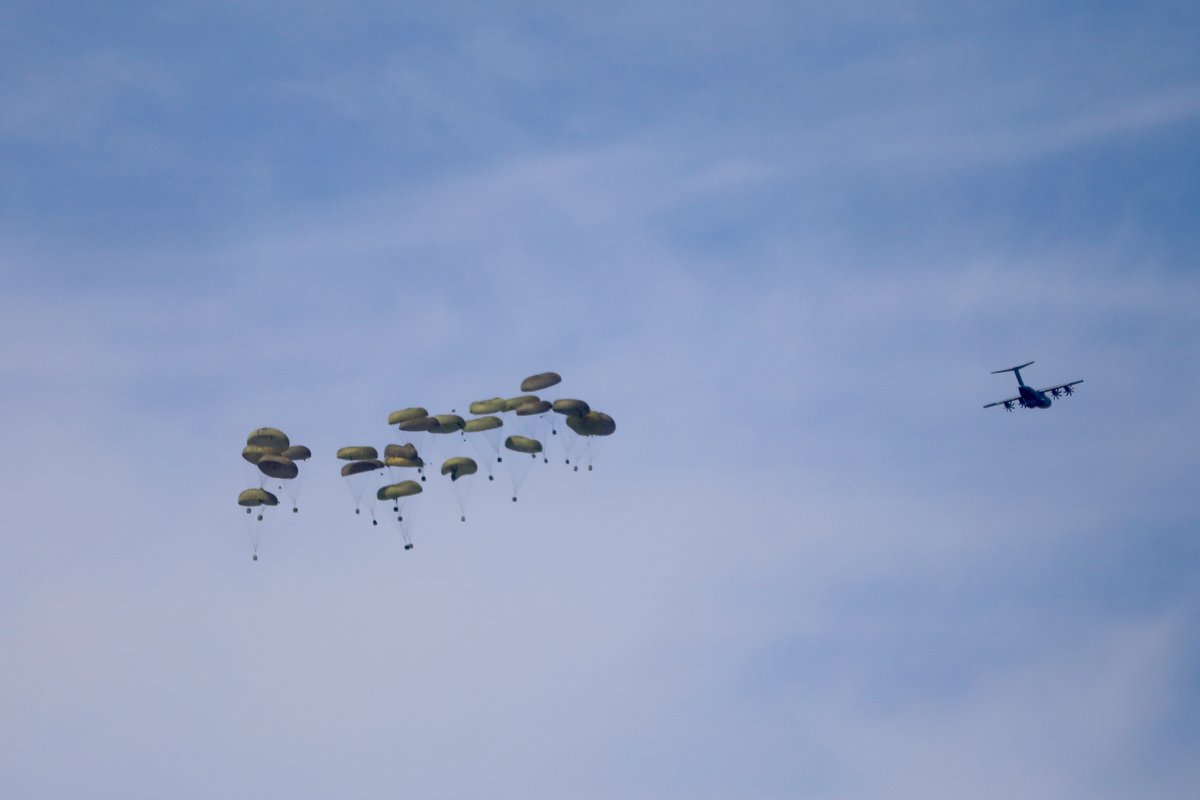Swedish police arrest four suspected of
'Islamist extremism'
By Ehren Wynder
March 7 (UPI) -- Swedish police forces said Thursday they arrested four people connected to "violent Islamist extremism" in the Stockholm area.
According to a statement, Sweden's Security Police and the Swedish Police Agency suspect the four people of "preparation for terrorist offenses and serious weapons offenses."
The Security Police said it also suspects connections to "serious organized crime."
The Swedish government last August raised its terror threat level from "elevated" to "high" due to an increased "threat of attacks from actors within violent Islamism" over the past year.
"High" is the fourth level threat on a five-level scale. This was the first time it had reached that level since 2016.
The new terror threat level is based on a strategic assessment of terrorist actors' "intention and ability to commit terrorist attacks against Sweden," government officials said.
The adjustment follows tensions caused by Swedish demonstrators burning or otherwise desecrating the Koran. The incidents led to Iraq last summer expelling Sweden's ambassador and accusing the Swedish government of "repeated permission for burning the Koran, insulting Islam and burning the Iraqi flag."
On Thursday, Sweden officially became the 32nd member of NATO. The country asked for admittance in the wake of Russia's invasion of Ukraine in 2022, but the process was stalled in part by Turkey, which was concerned by the Swedish government's response to Islamophobic demonstrations in the country.
Sweden is a big piece in the puzzle of surrounding Russia on their western and southern borders, for NATO. It is madness, of course, but it sells a lot of munitions - NATO's new raison d'être.
Houthis escalate Red Sea attacks;
target Singapore-flagged commercial vessel
March 9 (UPI) -- Houthis rebels in Yemen claimed on Saturday to have attacked a Singapore-flagged commercial vessel and U.S. Navy ships in the Red Sea as their assaults against maritime traffic escalated.
The Houthis fired "several suitable naval missiles" against the M/V Propel Fortune as well as launching 37 drones targeting several U.S. Navy destroyers in a separate action, Houthi spokesman Yahya Saree said in a statement.
The U.S. Central Command confirmed the rebels fired two anti-ship ballistic missiles at the Propel Fortune but did not strike the ship, while adding in a update that its forces launched defensive strikes against two truck-mounted anti-ship missiles in Houthi-controlled territories in Yemen.
The Propel Fortune is a Singapore-flagged vessel that is owned and operated by Singapore entities. It was located about 50 nautical miles southeast of Aden when attacked.
It was built in Japan in 2012 and formerly was a U.S.-flagged vessel named Trans Oceanic before its recent transfer to the current owner and operator in Singapore.
The attacks were done in separate operations by the Houthi militants and "successfully achieved their goals," Saree said, adding that the drones "successfully hit" targeted U.S. Navy destroyers.
Later on Saturday CENTCOM announced it had shot down a total of 28 Houthi drones during a "large-scale attack" launched by the Houthis against targets in the Red Sea and Gulf of Aden from 4 a.m. to 8:20 a.m. Sanaa time Friday.
The Houthi attacks on commercial and military vessels are in support of Hamas in Gaza and will continue, Saree said during a weekly rally held Friday in Sanaa, Yemen.
The attacks are escalating, and more than 100 have been reported targeting commercial and naval shipping in the Red Sea and Gulf of Aden, The Maritime Executive reported.
The solution here is to isolate Yemen from all shipping and air transport. That way, Iran will not be able to supply the Houthis with weapons, and as food runs out, Yemenis will turn against the Houthis and drive them out. That's my theory anyway.
At least 5 killed in Gaza after airdrop aid
parachutes fail to deploy
At least five people (all of them children according to another source) were killed and 10 others injured when airdropped aid packages fell on them in the Al Shati camp west of Gaza City, according to Hamas-run Ministry of Health.
Footages posted on social media showed a large cluster of aid parcels suspended from parachutes drifting through the sky but appearing to get tangled before one, with its chute deployed but not fully opened, dropped much more quickly than the rest.
The people were in the Al-Shati refugee camp in northern Gaza, and the incident occurred at around 11:30 a.m. local time.
The U.S., Jordan, Egypt, France, the Netherlands and Belgium dropped aid over Gaza on Friday in an attempt to get supplies, including desperately needed food, to residents amid an ever-worsening humanitarian crisis there.
The US Central Command (CENTCOM) denied in a statement that the fatalities were not caused by U.S. airdrops.
“We are aware of reports of civilians killed as a result of humanitarian airdrops. We express sympathies to the families of those who were killed. Contrary to some reports, this was not the result of U.S. airdrops,” CENTCOM said.















